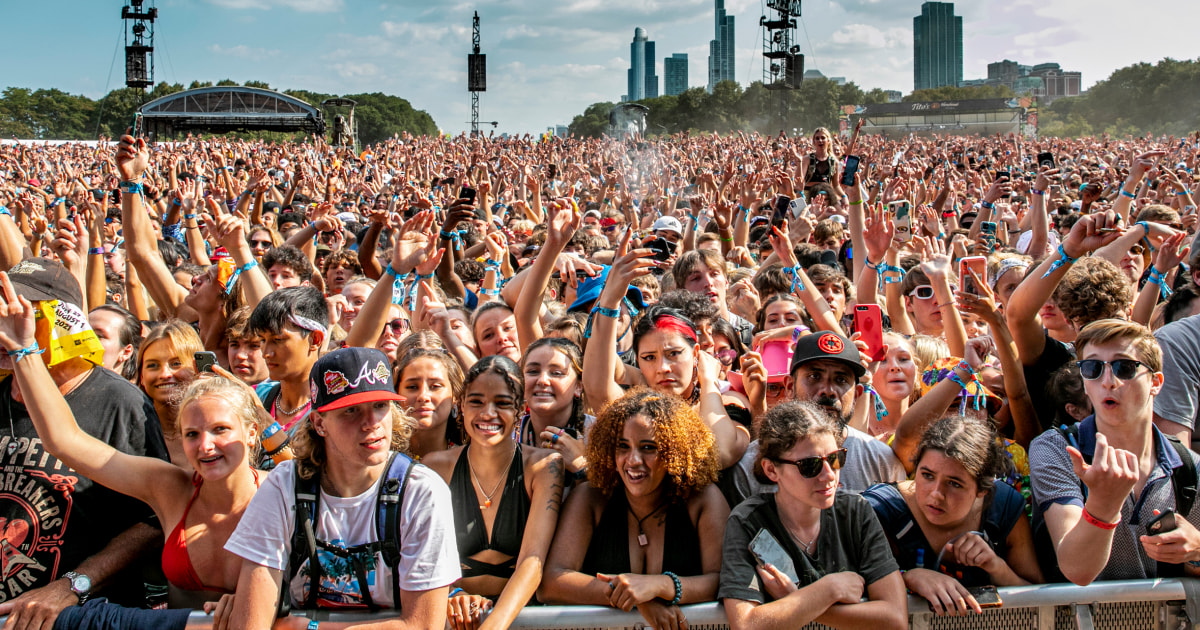Pandemic may perhaps have created youthful adults a lot more neurotic and considerably less agreeable
 [ad_1]
[ad_1]

Grown ups turned fewer extroverted, open up, agreeable and conscientious through the pandemic, a new examine observed.
The success, revealed Wednesday in the journal PLOS A single, confirmed that the degree of alter was around equal to a decade’s truly worth of average persona variations. Young grownups in distinct grew moodier, additional psychological and much more delicate to strain in 2021 as opposed to several years earlier, in accordance to the review.
The researchers analyzed survey results from extra than 7,100 U.S. adults from January 2021 to February 2022 and compared their responses to previously in the pandemic — the time period from March to December 2020 — as properly as to responses from preceding years.
The study was primarily based on the Big Five traits, a common way scientists appraise personalities. Contributors have been scored according to their stages of neuroticism, extroversion, openness, agreeableness and conscientiousness.
Throughout the 2020 interval, the responses had been quite constant with those collected ahead of Covid emerged. But the researchers noticed sizeable improvements through the 2021-2022 period, suggesting that the collective stress of the pandemic influenced people's tendencies in excess of time.
Previous analysis has by now shown that personalities can adjust as we age or develop new behaviors like doing exercises. Often as persons get older, they turn out to be much less neurotic, extroverted and open, but much more agreeable and conscientious, mentioned Angelina Sutin, the study’s lead writer and a professor at Florida State University.
But from 2021 to 2022, adults ages 64 and below noticed declines in extroversion, openness, agreeableness and conscientiousness. Adults less than 30 also saw an boost in neuroticism in that time period, while other age teams did not.
"Becoming additional mature is declining in neuroticism and escalating in agreeableness and conscientiousness, and we see the reverse for more youthful grown ups in the next year of the pandemic," Sutin said.
Grown ups above age 65, however, failed to see sizeable individuality adjustments relative to pre-pandemic years.
"The older you get, the much more of a sense of identity you have, the much more entrenched you are in your social roles. You know more who you are, so things are going to have an impact on you fewer in some strategies," reported Rodica Damian, an associate professor of social psychology at the University of Houston, who wasn't included in the study.
William Revelle, a psychology professor at Northwestern College, pointed out that the noticed identity adjustments could also stem, in section, from other social and political gatherings going on through the time interval analyzed.
“There was an election. There was a riot. There have been major shootings and main protests,” stated Revelle, who was also not associated in the analyze.
But he included that though it is really extremely hard to different those influences from the consequences of the pandemic, "Covid was a person of the important stressors hitting everyone — that was the primary detail that held individuals home."
Will these temperament improvements past?
Earlier exploration has not located an association concerning publicity to purely natural disasters and identity changes. For case in point, one study prompt that for the most portion, New Zealand residents’ personalities were being relatively stable just after the 2010-2011 Christchurch earthquakes. Damian's previous investigate has also not observed an all round change in temperament attributes between individuals affected by important storms like Hurricane Harvey.
But the authors of the new examine reported Covid's impression is unique from that of a all-natural disaster.
"The coronavirus pandemic has influenced the complete world and just about each individual element of life," they wrote.
Sutin reported 1 probable explanation personalities didn't appear to adjust at the commence of the pandemic is that there was a far more hopeful perspective in 2020.
"Early on in the pandemic, there was this emphasis on coming jointly and doing the job together and supporting each individual other," which may well have built men and women come to feel more emotionally secure, Sutin explained. "Which is some thing that form of fell apart in the 2nd calendar year."
Damian also observed that personalities never change overnight, so it can be not surprising that scientists noticed a difference right after two a long time instead of a single. For illustration, she reported, a person may well experience a gradual decline in extroversion if they prevented functions for two many years.
"Suddenly your self-graphic has transformed, your perception of id has improved because you have just not gone to a celebration for so long that you’re not sure if you can do it any longer," Damian claimed.
Researchers aren't positive regardless of whether grown ups will revert to their aged personalities as the pandemic's social and economic impacts fade.
"We captured these attributes at just one minute in time, so we really don't know whether these are lasting modifications or regardless of whether they’re momentary," Sutin mentioned.
Irrespective, she claimed, she's concerned about younger grownups, considering that their scores show that they could be at better risk of psychological health struggles, unhealthy training or taking in behaviors, or heightened issues at university or do the job.
Neuroticism "is a really consistent predictor of psychological health outcomes like melancholy and stress," Sutin said. And conscientiousness, which declined among the that age team, "is quite critical for educational and do the job outcomes, as well as associations and actual physical health," she additional.
Damian said it's typical to see the most spectacular shifts in identity attributes in grownups involving 18 and 25 many years previous, considering that that is when folks generally take on new tasks and change their life as they go to college or university or get their first careers.
"If the variations in temperament that they knowledgeable have some type of snowball effect simply because it is a vital developmental interval, then they may well even now see shortcomings afterwards on," Damian said.
[ad_2] https://g3box.org/news/health/pandemic-may-perhaps-have-created-youthful-adults-a-lot-more-neurotic-and-considerably-less-agreeable/?feed_id=9608&_unique_id=63349c5354255


0 comments:
Post a Comment